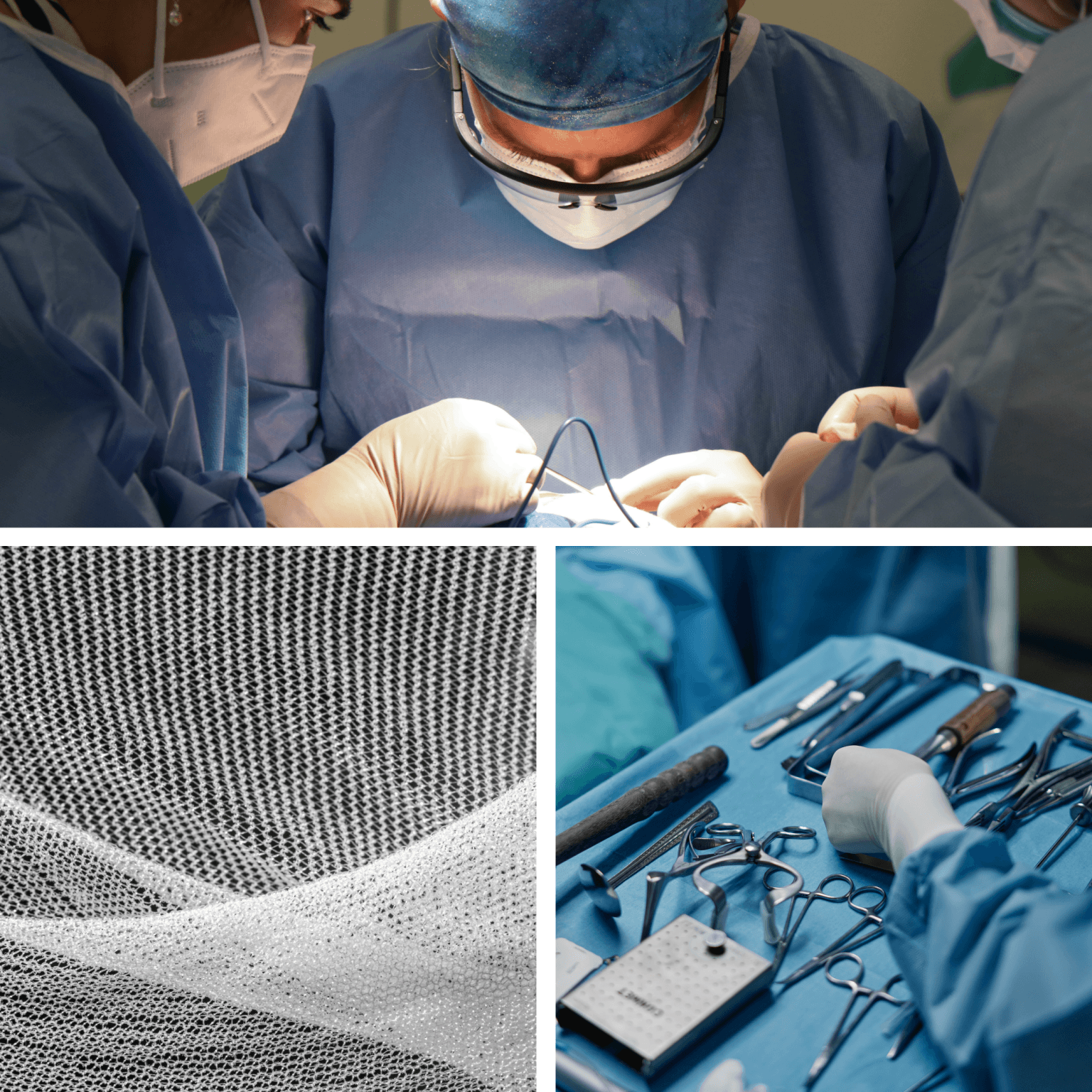Expert Guidance and Advocacy for Life’s Legal Challenges
Hernia Mesh Attorney Services
Fill out the form below and someone from the Nessler & Associates team will reach out to you shortly. Remember, no fees unless you win!

Reach Out For Your Risk Free,
No-cost Consultation
By submitting this form, you agree to allow us to contact you, as well as our terms of service and Privacy Policy.
Practice Area
About Hernia Mesh Attorney Services
Nessler Law has been a steadfast advocate for injured individuals for over four decades, leveraging extensive experience to secure fair settlements and verdicts for clients. Operating on a contingency fee basis, clients incur no legal fees until their case is resolved successfully. The dedicated team of attorneys at Nessler Law is committed to vigorously representing clients to achieve the compensation they deserve.

No Fees Unless You Win!
Reach Out For Your Risk Free No-cost Consultation
Fill out the form and someone from the Nessler team will reach out to you shortly. Remember, no fees unless you win!

Reach Out For Your Risk Free,
No-cost Consultation
By submitting this form, you agree to allow us to contact you, as well as our terms of service and Privacy Policy.
A hernia occurs when organs or fatty tissue protrudes through a defect in the connective tissue surrounding your abdomen. Most defects involve weak or damaged tissue, with incisional hernias occurring at old surgical sites. Hernia surgery is common, with about 1 million people undergoing it every year.
Surgeons use more than 70 types of surgical mesh in more than 80% of hernia repairs. Hernia messes are made from knotted and woven animal or synthetic filaments. Some kinds of mesh support the wounded tissue forever, while the body absorbs others.
Scar tissue grows over absorbable mesh as it degrades. With hernia mesh, doctors have a 30% chance of preventing hernia recurrence, compared with sutures with a 60% chance.
However, medical device manufacturers can mislabel products or ship lots that fail quality control measures. Patients receiving one of these devices during a hernia mesh surgery can face severe complications from infections to adhesions.
A product liability lawyer with Nessler & Associates can help you discover if you are entitled to compensation. Schedule a free consultation with an attorney at our law firm if you have received a defective hernia mesh implant.
Which Hernia Meshes Have Been Recalled by the FDA?
The FDA classifies recalls by the probability that the product will cause severe adverse events. Class I recalls are for products with a significant chance of causing serious adverse medical conditions or death.
Class II recalls can cause temporary or reversible harm or have a remote chance of causing severe injury or death.
The FDA classified all but one hernia mesh recall as Class II–they designated the first as a Class I recall. Design defects, production mistakes, and poor labeling contribute to hernia mesh failure. The manufacturer commits these errors, leading to product recalls.
These include:
- C.R. Bard recalled Composix Kugel mesh in 2005 due to a defective design. The FDA designated this as a Class I recall. The defect caused the device to damage the intestines or create a fistula, an abnormal connection between the intestines and other internal organs or the skin.
- Ethicon, a Johnson & Johnson company, recalled Proceed Surgical Mesh in 2010. The company discovered that the mesh layers could separate, causing the mesh to fail.
- Atrium recalled C-Qur Mesh in 2013 when the company discovered that storage could damage the mesh.
- Ethicon recalled another product, Physiomesh, due to a lack of quality controls in 2015. The company had failed to register as a medical device company and relied on vendors for quality control.
- Atrium recalled ProLite Mesh in 2018 because some units had the wrong labels attached.
- Sofradim Production recalled Versatex for failing in multiple complicated hernia repairs in 2018.
- Covidien recalled Parietex, a mesh used to repair recurrent parastomal hernias, in 2018. Parastomal hernias occur after ostomy surgeries–a procedure that connects the intestine to a bag outside the body.
- ACell recalled Gentrix because the quality control department failed a sample in 2019.
What is Mesh Erosion?
Mesh erosion occurs when the immune system treats the mesh as a foreign body and attacks it, damaging the tissue. It usually happens at the surgical site, but it can also occur in cases where the mesh migrates to other areas. Erosion also causes secondary migration, where the mesh sinks through the tissue it is meant to reinforce.
You might need revision surgery to remove the mesh or repair your abdominal wall. However, the expenses from additional surgical and medical treatments can add up fast. Working with a product liability attorney with Nessler & Associates can help you understand the compensation you need to cover your losses by filing a claim.
What Injuries Can a Defective Hernia Mesh Cause?
Defective or damaged surgical mesh can cause severe and sometimes permanent damage to your body. These side effects can affect your physical well-being, emotional health, and financial resources.
When a hernia mesh implant fails, it can trigger acute physical symptoms and injuries that may include:
Infection
Infection is a common surgical complication from hernia meshes, causing fever, inflammation, and pain. An untreated infection can create an abscess and invade the surrounding bone. As a result, sepsis can occur, a life-threatening systemic infection.
Fistula
A fistula is an unhealed wound that creates an abnormal connection between organs. It can lead to abscesses, bleeding, diarrhea, and fatigue.
Bowel Perforation
A bowel perforation occurs when the large intestine is punctured. Symptoms of a perforated bowel or other organ include nausea, vomiting, fever, or sudden intense pain. These injuries usually require additional surgery and extensive medical treatment.
Chronic Pain
A defective mesh can cause an infection or trigger an immune response. It can also lead to nerve damage, mesh erosion, or migration, causing chronic pain.
Adhesions
An adhesion is formed by scar tissue attaching two structures, such as bowels and meshes. Adhesion formation can result in intense abdominal pain, damage to surrounding organs, back pain, and nausea.
Hernia Recurrence
Hernias recur when the surgical mesh fails. Symptoms of a hernia recurrence include a bulge near the original hernia, infection, pain, constipation, nausea, and vomiting. Severe pain can significantly decrease blood flow, and you should seek medical attention immediately.
Bowel Obstruction
Bowel obstructions occur when the mesh grows or erodes into the large intestine or migrates and entraps a loop of the bowel. It is common for people to suffer from intermittent pain, decreased appetite, constipation, vomiting, and difficulty passing gas due to bowel obstruction.
In most cases, these symptoms are severe enough to seek medical attention. This is usually when the failure of the hernia mesh implant is discovered. Make sure you keep all records and receipts related to your original surgery and future treatments so your lawyer can estimate the amount of compensation for your medical expenses.
A personal injury lawyer with Nessler & Associates can look at these records during your initial consultation. We can give you an idea of what to expect from a product liability claim.
What Do Studies Say Regarding Hernia Meshes?
A 2017 study found that mesh can lose flexibility over time and cause recurrence, erosion, or adhesion. The material used to make hernia mesh affects the complications you might experience. For example, synthetic materials, such as polypropylene, have more mechanical failures, while biologically derived materials cause more immune system reactions.
Our law firm works with various medical experts to identify issues with your mesh and the medical treatment you received.
Do I Qualify for a Hernia Mesh Lawsuit?
If you or a family member meet the following qualifications, you may be able to file a hernia mesh lawsuit:
- You had a reparation surgery for your hernia, and the mesh was implanted as part of the procedure.
- You experienced complications related to defects of the mesh.
How Can a Hernia Mesh Lawyer Help?
An experienced personal injury lawyer understands the nuances involved in product liability cases. We can determine the best way to present your case to the insurance company or court. We can help you with the following:
File Your Claim for Compensation Within the Statute of Limitations
Each state has different laws pertaining to the statute of limitations for product liability claims.
These laws can be complicated. A good product liability attorney can help you determine whether you have met the legal statute of limitation requirements.
Compile Evidence to Support Your Case
Evidence includes medical records, receipts, pay stubs, tax returns, and expert testimony. This evidence shows how much the defective product cost in medical expenses and lost wages. It also shows the impact the product has had on your life.
File Your Case in Court
Your lawyer can work on your case and guide you through the legal process. We can file a pretrial motion to compel a person or company to hand over evidence or give a deposition. We may also file a pretrial motion for summary judgment. This motion asks the judge to reach a verdict based on the facts in evidence at the time.
Your lawyer can represent you in court, arguing on your behalf and proving the defective hernia mesh caused your injuries.
What Damages Can You Collect in a Hernia Mesh Lawsuit?
Calculable or economic damages refer to financial losses caused by someone else’s negligence or wrongdoing. They can cover lost wages, ongoing treatment costs, and out-of-pocket expenses for medical care and prescriptions.
For example, you might need to miss work for an extended time if you cannot perform specific tasks due to pain or other symptoms related to your injury. Your settlement should reflect the loss of income from being unable to work.
You may also recover damages for your noneconomic losses. Non-economic damages cover non-quantifiable losses, such as emotional distress, loss of enjoyment of life, and pain and suffering.
For example, you might lose the ability to participate in your usual activities due to chronic pain or weakened abdominal muscles. If this is the case, you may also be entitled to compensation for those damages.
The injury lawyers with Nessler & Associates will assess the evidence to determine the amount of damages to seek. We can use the evidence to link your injuries to the defective hernia mesh and its manufacturer. This link forms the basis of your claim.
What is Multi-District Litigation?
The federal court system uses multi-district litigation (MDL) to reduce the clutter on its docket. It also saves time and money for plaintiffs and defendants. It differs from a class action suit because the cases are not combined. Each issue is tried or settled on its own merits.
When thousands of people file similar lawsuits, the courts transfer them to one jurisdiction with one judge overseeing the pre-trial process. The judge chooses several plaintiffs’ lawyers to lead the discovery process. Every plaintiff gets access to the discovery materials.
The lawyers from both sides choose several representative cases to get an idea of what juries would do under specific circumstances. The results of these bellwether trials allow both parties to gauge settlement amounts. You can still take the case to trial if the company refuses to offer a fair settlement.
The hernia mesh multi-district litigation is the third largest in the history of the U.S., with more than 16,000 cases. Becton Dickinson, which purchased C.R. Bard, won the first bellwether trial but lost the second. They were ordered to pay the plaintiff $255,000.
The product liability lawyers with Nessler & Associates can hold hernia mesh manufacturers responsible for their negligence. If necessary, we can file your case with an MDL to join other cases such as yours to achieve justice and gain compensation.
Contact an Experienced Medical Device Attorney
If you have a potential hernia mesh lawsuit and want to learn your next steps and the potential value of your claim, contact a hernia mesh attorney at our law firm.
Nessler & Associates attorneys have over 40 years of combined experience protecting the rights of victims of negligence and misconduct. We fight aggressively to get you the compensation you deserve.
We work on a contingency fee basis, which means you pay nothing unless you get compensation. This fee arrangement allows you to get skilled legal representation regardless of your financial situation. Call our law firm at (217) 262-1747 to schedule a no-obligation free case review and learn how we can help.
Don't Wait Any Longer!
Get started with our Hernia Mesh Attorney Services today!
Our highly skilled and caring team of attorneys are dedicated to telling your side of the story.
